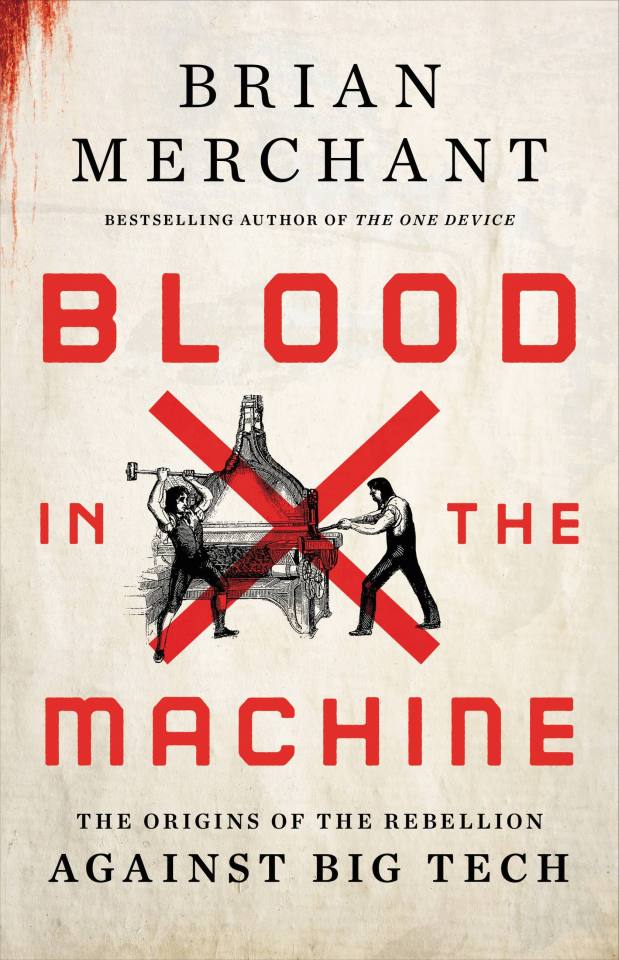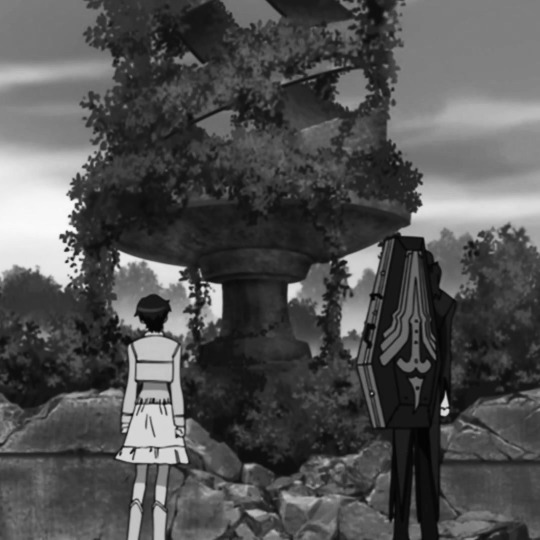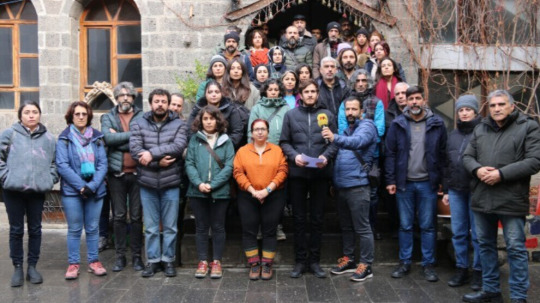#proxy war analysis
Explore tagged Tumblr posts
Text
Richard Wolff on the failure of the Ukraine conflict
Richard Wolff The Ukraine Conflict Is a Costly Failure
youtube
Richard Wolff on the failure of the Ukraine conflict.
#Ukraine#Ukraine war#Russia#conflict#economic growth#International Monetary Fund#Lloyd Austin#military support#US military support#China#India#proxy war#proxy war analysis#Ukrainian devastation#GDP#Global GDP comparison#Richard Wolff#Youtube
0 notes
Text
Iran’s Proxy Network Getting Reality-Checked HARD
TL;DR — Tehran’s “axis of resistance” was supposed to be a nuke-proof trump card; instead it looked like a paper tiger when crunch time hit.
🔗 1. The “Axis of Resistance” Hype
For years Iran built up Hezbollah, Syrian militias, Iraqi groups, the Houthis—a 360-degree deterrent.
Big moment arrives… and they kinda flop. 😬
🚀 2. Hezbollah: Expected HAM, Got Border Skirmish
Everyone assumed Hezbollah would unleash its massive rocket arsenal.
Reality: a few rockets, some skirmishes, then… pause.
Why? Israel’s “⚠️ FAFO” policy—pre-emptive strikes on missile crews & commanders. Message received.
🎯 3. Syria: Israel Went Full Whack-A-Mole
IDF expanded their usual strikes: weapons depots, convoys, Quds Force units.
Russia—also in Syria—shrugged and let it happen. So much for that ‘alliance.’
🛰️ 4. Houthis: Lil’ Cousin Energy
The Houthis fired long-range drones from Yemen. One got swatted over the Red Sea by a US ship.
Symbolic at best—they’re already tied up with Saudi Arabia.
📉 5. “Degraded & Defensive”
US/Israeli intel: Iran’s proxy network now “degraded.”
Years of IDF air campaigns thinned the ranks; when Tehran needed them, delivery was… underwhelming.
🔥 6. Strategic Gut-Punch for Iran
Deterrence motto = “Hit us, we hit you from all sides.”
Actual outcome = proxies held back or got contained. Ouch.
🛠️ 7. What’s Next?
Iran: double-down mode—more rockets for Hezbollah, more drones for militias, rebuild deterrence.
Israel: double-down, too—beefier air defenses, relentless intel hunts.
♟️ 8. Bloody Chessboard, Not Cleared
Lebanon, Syria, Yemen—still powder kegs.
Next Iran-Israel flare-up could light them all. Both sides know containment isn’t guaranteed.
NEXT POST -> CLICK HERE
FIRST POST -> CLICK HERE
#iran#hezbollah#axis of resistance#paper tiger#proxy war#syria#houthis#lebanon#deterrence Fail#strategic Setback#middle east#military Analysis#quds Force#missiles#geopolitics
0 notes
Text
Ceasefire or Intermission?
Peace is not a one-sided burden. And India will no longer pay for it alone. The world may still be calling it a skirmish. On May 9, 2025, what had long simmered beneath diplomatic surfaces turned kinetic. The India-Pakistan conflict has escalated into a significant military confrontation, with both nations engaging in airstrikes and missile exchanges. India’s Operation Sindoor targeted…
#Aksai Chin#Balochistan#ceasefire analysis#FATF grey list#global security#IMF loans Pakistan#India defense policy#India-Pakistan conflict#Indo-Pak ceasefire#Line of Control#nuclear escalation#Pakistan fragmentation#Pashtunistan#proxy war#regional instability#Sindhudesh#South Asia geopolitics#strategic affairs#terrorism financing
0 notes
Text
The Heavy Cost of Engagement: An Exposé on America's Military Conflicts Since WWII
In examining the profound economic and human costs of America’s military engagements since World War II, we uncover a staggering reality that defines the nation’s foreign policy strategies. The price of wars waged has reached approximately $6 trillion, coupled with the tragic loss of over 100,000 American military personnel. This investigatory piece highlights the rhetoric of “bush wars” and…
#Afghanistan#American Lives Lost#Budgetary Resources#Bush Wars#Casualty Rates#Conflict Analysis#Economic Costs#Foreign Policy#Global Conflict#Gulf War#Iraq War#Korean War#Long-term Effects#Military Budget#Military Engagements#Military History#Military Operations#Military Strategy#Proxy Wars#public opinion#Regional Stability#U.S. Foreign Relations#Vietnam War#War on Terror#World War II
0 notes
Text
There's a second leg coming and a long way to go, but getting here is something in and of itself
The last time I felt like this Arsenal were beating Barcelona 2-1 at the Emirates
#previously unheard-of variations on joy unlocked#i don't want nuanced takes and political analysis#i know it's very easy to tip this over into us-china proxy war; if either of those two wanted to take that route#i know there's a long long way to go till actual accountability happens#but emotionally. i want to party.#i want GOSSIP i want MEMES i want to host a fiesta in the streets#personal#how to visit the netherlands without a schengen visa by rodrigo duterte
2 notes
·
View notes
Note
i largely agree with your politics but tbqh the way you present your ideas is not really radical, frankly it's worryingly eschatological/messianic. which sucks cuz otherwise you seen like a pretty rational individual
I don't think 'making claims about the future' is inherently messianic or eschatological, though I understand this is often a sticking point regarding Marxism - if we understand dialectical and historical materialism to be genuine scientific knowledge on human society, which we should, then the ability to predict future events with confidence is simply part and parcel of its existence as scientific knowledge.
The claim 'the tendency of the rate of profit to fall drives capital inevitably, through various ways, into cyclical crises of various scales, with the largest-scale examples consisting of global economic crises and world wars, the approach to which can be recognised and quantified prior' should be seen as no more messianic than 'the release of greenhouse gasses into the atmosphere causes runaway heating which, while increasing the general planetary average temperature, alao leads to localised extreme weather events and rising sea levels, which can be recognised and quantified prior'.
Fundamentally, while a lot of people are willing to accept Marxism as providing *empirical* understanding of human society; that is, as a means to understand and decompose present and historical social issues; it is a lot harder for people to accept Marxism as providing genuinely scientific understanding of human society capable of predictive power. The reasons behind this are, generally, due to the nature of enlightenment philosophy and the bourgeois conception of science, wherein bourgeois social 'sciences' are incomplete, piecemeal, and reflexive (since, as Marxism demonstrates, a geneuine scientific analysis of human society, beginning from the political-economic basis of society, is harmful to bourgeois society).
When I say 'revolution in the imperial core is not going to occur today, but is an essential inevitability in the near future' I am saying, essentially, nothing more than the well-proven principle that 'revolution will occur where the chain of imperialism is weakest'. The condition for revolution in the imperial core is widespread revolution in the periphery states, the condition for widespread revolution in the periphery states is worldwide economic crisis and war, and the condition for worldwide economic crisis and war is the decline of imperial profits and the collapse of imperialist alliances. There is a fairly clear chain of events here, each of which has not only turned out in the past (the first world war being predictable before it ever occured) but is currently turning out in the present (look back even on my own blog towards discussions of inter-imperialist war and note that Marxists had predicted a ground war in Europe by 2025 well prior to the actual commencement of the Russia-NATO proxy war in Ukraine, as well as the inevitability of an economic crash circa 2020).
As proletarians, there is, also, largely nothing that can be done to influence these events without the existence of large proletarian political organs capable of leading the proletariat in conscious political action - the existence of which is contingent on historical circumstances. The imperial core does not have serious proletarian organs with a mass basis, and will not have those organs until conditions exist to facilitate them - said conditions being the collapse of imperialist profits and the worsening of domestic repression in core states. This does not mean that the eventual emergence and victory of those organs will not require constant, arduous work from communists to build up and maintain, to whatevee degree is possible, a communist movement until fhat time arrives - but it means that, for instance: Marx in the 1800s was never going to lead a socialist state, leaving that work to a future Lenin.
Almost assuredly, no existing party in the USA will carry out revolution - but the leaders of the revolutionary movement that will emerge under the pressures of war against Russia, China, the EU imperialist bloc; and of climate crisis and economic collapse; will likely be the ones gaining experience in political work at this time. Marxism speaks of classes, not individuals - it is not, really, messianic to say 'the bourgeoisie will go to war when faced with economic crisis, and the proletariat will resist when faced with war', nor is it, I reason, very eschatological to say 'the world is going to get much, much worse in the near future, however, there is a possible way to escape the horrors of war that does not end in nuclear annihilation'.
However, if it's what you'd prefer, I could call myself God-queen of violent benevolence, and emanate a vision of revolutionary salvation - whichever works.
446 notes
·
View notes
Note
Your analysis don't miss! Has William done some horrible things as Maxwell? Of course, one would be insane to say he hasn't, but his story is one built on tragedy and desperation, Wagstaff's is built on apathy and always getting away with his actions. Maxwell spent what was around 15 real life years (who knows how many in the constant) suffering for his crimes, Wagstaff isn't even actually within the constant.
I just can't wait for the moment Wagstaff gets his karma
I have to mildly disagree because Maxwell is William, but William is not Maxwell.
Maxwell is a version of William that survived despite everything, lived through all the years that changed him for the worse. William died during the train crash and Maxwell was born, a sick metamorphosis melded by hands of fate and the shadows.



All traces of the man are destroyed, his face, his name, and even his connection to his own family is severed and taken away from him. The same family that he only wanted to visit but died before even meeting such a simple request.


And its probably for the best to leave him as a perfect ghost of the past; its easier to pity and mourn a young man and not the terrible, sick person he became.
But I do agree with the rest, I think its fair to think that its injustice how both Maxwell & Wagstaff worked with forces they did not understand, but Maxwell got the electric chair and padded room equivalent of don't starve for an eternity (or approximately 2 decades) while Wagstaff is free.
If anything, Wagstaff also earned from William/Maxwell's downward spiral. If it wasn't for all those events leading up to the final act and the camera recording, he would never get to know constant and the rest. Judging by his dialogues for Maxwell's statue and clockworks: he admits his admiration and desire to meet Maxwell and it was most certainly to take advantage of Maxwell's knowledge or power.
I do want Wagstaff to serve his karma but that won't be until the characters understand his motives. Maxwell brought pain and despair in the constant while Wagstaff is bringing that on earth. It is easier to hate and pick on someone you see everyday, someone who tortured you by proxy, someone that you saw do the things that they did.
Characters who were evicted before 1914 would be baffled that there was a great war and it ended by the time the rest of the cast was there. Let alone making them believe that the outside world is in worse hands and Wagstaff is actively working on the cause.
28 notes
·
View notes
Text
Brian Merchant’s “Blood In the Machine”

Tomorrow (September 27), I'll be at Chevalier's Books in Los Angeles with Brian Merchant for a joint launch for my new book The Internet Con and his new book, Blood in the Machine. On October 2, I'll be in Boise to host an event with VE Schwab.

In Blood In the Machine, Brian Merchant delivers the definitive history of the Luddites, and the clearest analysis of the automator's playbook, where "entrepreneurs'" lawless extraction from workers is called "innovation" and "inevitable":
https://www.littlebrown.com/titles/brian-merchant/blood-in-the-machine/9780316487740/
History is written by the winners, and so you probably think of the Luddites as brainless, terrified, thick-fingered vandals who smashed machines and burned factories because they didn't understand them. Today, "Luddite" is a slur that means "technophobe" – but that's neither fair, nor accurate.
Luddism has been steadily creeping into pro-labor technological criticism, as workers and technology critics reclaim the term and its history, which is a rich and powerful tale of greed versus solidarity, slavery versus freedom.
The true tale of the Luddites starts with workers demanding that the laws be upheld. When factory owners began to buy automation systems for textile production, they did so in violation of laws that required collaboration with existing craft guilds – laws designed to ensure that automation was phased in gradually, with accommodations for displaced workers. These laws also protected the public, with the guilds evaluating the quality of cloth produced on the machine, acting as a proxy for buyers who might otherwise be tricked into buying inferior goods.
Factory owners flouted these laws. Though the machines made cloth that was less durable and of inferior weave, they sold it to consumers as though it were as good as the guild-made textiles. Factory owners made quiet deals with orphanages to send them very young children who were enslaved to work in their factories, where they were routinely maimed and killed by the new machines. Children who balked at the long hours or attempted escape were viciously beaten (the memoir of one former child slave became a bestseller and inspired Oliver Twist).
The craft guilds begged Parliament to act. They sent delegations, wrote petitions, even got Members of Parliament to draft legislation ordering enforcement of existing laws. Instead, Parliament passed laws criminalizing labor organizing.
The stakes were high. Economic malaise and war had driven up the price of life's essentials. Workers displaced by illegal machines faced starvation – as did their children. Communities were shattered. Workers who had apprenticed for years found themselves graduating into a market that had no jobs for them.
This is the context in which the Luddite uprisings began. Secret cells of workers, working with discipline and tight organization, warned factory owners to uphold the law. They sent letters and posted handbills in which they styled themselves as the army of "King Ludd" or "General Ludd" – Ned Ludd being a mythical figure who had fought back against an abusive boss.
When factory owners ignored these warnings, the Luddites smashed their machines, breaking into factories or intercepting machines en route from the blacksmith shops where they'd been created. They won key victories, with many factory owners backing off from automation plans, but the owners were deep-pocketed and determined.
The ruling Tories had no sympathy for the workers and no interest in upholding the law or punishing the factory owners for violating it. Instead, they dispatched troops to the factory towns, escalating the use of force until England's industrial centers were occupied by literal armies of soldiers. Soldiers who balked at turning their guns on Luddites were publicly flogged to death.
I got very interested in the Luddites in late 2021, when it became clear that everything I thought I knew about the Luddites was wrong. The Luddites weren't anti-technology – rather, they were doing the same thing a science fiction writer does: asking not just what a new technology does, but also who it does it for and who it does it to:
https://locusmag.com/2022/01/cory-doctorow-science-fiction-is-a-luddite-literature/
Unsurprisingly, ever since I started publishing on this subject, I've run into people who have no sympathy for the Luddite cause and who slide into my replies to replicate the 19th Century automation debate. One such person accused the Luddites of using "state violence" to suppress progress.
You couldn't ask for a more perfect example of how the history of the Luddites has been forgotten and replaced with a deliberately misleading account. The "state violence" of the Luddite uprising was entirely on one side. Parliament, under the lackadaisical leadership of "Mad King George," imposed the death penalty on the Luddites. It wasn't just machine-breaking that became a capital crime – "oath taking" (swearing loyalty to the Luddites) also carried the death penalties.
As the Luddites fought on against increasingly well-armed factory owners (one owner bought a cannon to use on workers who threatened his machines), they were subjected to spectacular acts of true state violence. Occupying soldiers rounded up Luddites and suspected Luddites and staged public mass executions, hanging them by the dozen, creating scores widows and fatherless children.
The sf writer Steven Brust says that the test to tell whether someone is on the right or the left is simple: ask whether property rights are more important than human rights. If the person says "property rights are human rights," they are on the right.
The state response to the Luddites crisply illustrates this distinction. The Luddites wanted an orderly and lawful transition to automation, one that brought workers along and created shared prosperity and quality goods. The craft guilds took pride in their products, and saw themselves as guardians of their industry. They were accustomed to enjoying a high degree of bargaining power and autonomy, working from small craft workshops in their homes, which allowed them to set their own work pace, eat with their families, and enjoy modest amounts of leisure.
The factory owners' cause wasn't just increased production – it was increased power. They wanted a workforce that would dance to their tune, work longer hours for less pay. They wanted unilateral control over which products they made and what corners they cut in making those products. They wanted to enrich themselves, even if that meant that thousands starved and their factory floors ran red with the blood of dismembered children.
The Luddites destroyed machines. The factory owners killed Luddites, shooting them at the factory gates, or rounding them up for mass executions. Parliament deputized owners to act as extensions of law enforcement, allowing them to drag suspected Luddites to their own private cells for questioning.
The Luddites viewed property rights as just one instrument for achieving human rights – freedom from hunger and cold – and when property rights conflicted with human rights, they didn't hesitate to smash the machines. For them, human rights trumped property rights.
Their bosses – and their bosses' modern defenders – saw the demands to uphold the laws on automation as demands to bring "state violence" to bear on the wholly private matter of how a rich man should organize his business. On the other hand, literal killing – both on the factory floor and at the gallows – was not "state violence" but rather, a defense of the most important of all the human rights: the rights of property owners.
19th century textile factories were the original Big Tech, and the rhetoric of the factory owners echoes down the ages. When tech barons like Peter Thiel say that "freedom is incompatible with democracy," he means that letting people who work for a living vote will eventually lead to limitations on people who own things for a living, like him.
Then, as now, resistance to Big Tech enjoyed widespread support. The Luddites couldn't have organized in their thousands if their neighbors didn't have their backs. Shelley and Byron wrote widely reproduced paeans to worker uprisings (Byron also defended the Luddites in the House of Lords). The Brontes wrote Luddite novels. Mary Shelley's Frankenstein was a Luddite novel, in which the monster was a sensitive, intelligent creature who merely demanded a say in the technology that created him.
The erasure of the true history of the Luddites was a deliberate act. Despite the popular and elite support the Luddites enjoyed, the owners and their allies in Parliament were able to crush the uprising, using mass murder and imprisonment to force workers to accept immiseration.
The entire supply chain of the textile revolution was soaked in blood. Merchant devotes multiple chapters to the lives of African slaves in America who produced the cotton that the machines in England wove into cloth. Then – as now – automation served to obscure the violence latent in production of finished goods.
But, as Merchant writes, the Luddites didn't lose outright. Historians who study the uprisings record that the places where the Luddites fought most fiercely were the places where automation came most slowly and workers enjoyed the longest shared prosperity.
The motto of Magpie Killjoy's seminal Steampunk Magazine was: "Love the machine, hate the factory." The workers of the Luddite uprising were skilled technologists themselves.
They performed highly technical tasks to produce extremely high-quality goods. They served in craft workshops and controlled their own time.
The factory increased production, but at the cost of autonomy. Factories and their progeny, like assembly lines, made it possible to make more goods (even goods that eventually rose the quality of the craft goods they replaced), but at the cost of human autonomy. Taylorism and other efficiency cults ended up scripting the motions of workers down to the fingertips, and workers were and are subject to increasing surveillance and discipline from their bosses if they deviate. Take too many pee breaks at the Amazon warehouse and you will be marked down for "time off-task."
Steampunk is a dream of craft production at factory scale: in steampunk fantasies, the worker is a solitary genius who can produce high-tech finished goods in their own laboratory. Steampunk has no "dark, satanic mills," no blood in the factory. It's no coincidence that steampunk gained popularity at the same time as the maker movement, in which individual workers use form digital communities. Makers networked together to provide advice and support in craft projects that turn out the kind of technologically sophisticated goods that we associate with vast, heavily-capitalized assembly lines.
But workers are losing autonomy, not gaining it. The steampunk dream is of a world where we get the benefits of factory production with the life of a craft producer. The gig economy has delivered its opposite: craft workers – Uber drivers, casualized doctors and dog-walkers – who are as surveilled and controlled as factory workers.
Gig workers are dispatched by apps, their faces closely studied by cameras for unauthorized eye-movements, their pay changed from moment to moment by an algorithm that docks them for any infraction. They are "reverse centaurs": workers fused to machines where the machine provides the intelligence and the human does its bidding:
https://pluralistic.net/2021/02/17/reverse-centaur/#reverse-centaur
Craft workers in home workshops are told that they're their own bosses, but in reality they are constantly monitored by bossware that watches out of their computers' cameras and listens through its mic. They have to pay for the privilege of working for their bosses, and pay to quit. If their children make so much as a peep, they can lose their jobs. They don't work from home – they live at work:
https://pluralistic.net/2021/01/22/paperback-writer/#toothless
Merchant is a master storyteller and a dedicated researcher. The story he weaves in Blood In the Machine is as gripping as any Propublica deep-dive into the miserable working conditions of today's gig economy. Drawing on primary sources and scholarship, Blood is a kind of Nomadland for Luddites.
Today, Merchant is the technology critic for the LA Times. The final chapters of Blood brings the Luddites into the present day, finding parallels in the labor organizing of the Amazon warehouse workers led by Chris Smalls. The liberal reformers who offered patronizing support to the Luddites – but didn't imagine that they could be masters of their own destiny – are echoed in the rhetoric of Andrew Yang.
And of course, the factory owners' rhetoric is easily transposed to the modern tech baron. Then, as now, we're told that all automation is "progress," that regulatory evasion (Uber's unlicensed taxis, Airbnb's unlicensed hotel rooms, Ring's unregulated surveillance, Tesla's unregulated autopilot) is "innovation." Most of all, we're told that every one of these innovations must exist, that there is no way to stop it, because technology is an autonomous force that is independent of human agency. "There is no alternative" – the rallying cry of Margaret Thatcher – has become our inevitablist catechism.
Squeezing the workers' wages conditions and weakening workers' bargaining power isn't "innovation." It's an old, old story, as old as the factory owners who replaced skilled workers with terrified orphans, sending out for more when a child fell into a machine. Then, as now, this was called "job creation."
Then, as now, there was no way to progress as a worker: no matter how skilled and diligent an Uber driver is, they can't buy their medallion and truly become their own boss, getting a say in their working conditions. They certainly can't hope to rise from a blue-collar job on the streets to a white-collar job in the Uber offices.
Then, as now, a worker was hired by the day, not by the year, and might find themselves with no work the next day, depending on the whim of a factory owner or an algorithm.
As Merchant writes: robots aren't coming for your job; bosses are. The dream of a "dark factory," a "fully automated" Tesla production line, is the dream of a boss who doesn't have to answer to workers, who can press a button and manifest their will, without negotiating with mere workers. The point isn't just to reduce the wage-bill for a finished good – it's to reduce the "friction" of having to care about others and take their needs into account.
Luddites are not – and have never been – anti-technology. Rather, they are pro-human, and see production as a means to an end: broadly shared prosperity. The automation project says it's about replacing humans with machines, but over and over again – in machine learning, in "contactless" delivery, in on-demand workforces – the goal is to turn humans into machines.
There is blood in the machine, Merchant tells us, whether its humans being torn apart by a machine, or humans being transformed into machines.
Brian and I are having a joint book-launch tomorrow night (Sept 27) at Chevalier's Books in Los Angeles for my new book The Internet Con and his new book, Blood in the Machine:
https://www.eventbrite.com/e/the-internet-con-by-cory-doctorow-blood-in-the-machine-by-brian-merchant-tickets-696349940417



If you'd like an essay-formatted version of this post to read or share, here's a link to it on pluralistic.net, my surveillance-free, ad-free, tracker-free blog:
https://pluralistic.net/2023/09/26/enochs-hammer/#thats-fronkonsteen
#pluralistic#books#reviews#brian merchant#luddism#automation#history#gift guide#steampunk#makers#tina#inevitablism#reverse centaurs#amazon#arise
549 notes
·
View notes
Text
Georgians are in the streets fighting for their democracy. The Georgian Dream party, which is working to align Tbilisi with Moscow’s interests, declared victory in the country’s Oct. 26 election before the votes were even counted. Voters and election observers were harassed by Russian-funded gangs and mobsters; just after the election, protesters holding European Union flags were sprayed with water from high-powered hoses. And the person who has the iron will necessary to lead the charge against Russian-inspired authoritarianism in Georgia? A woman: President Salome Zourabichvili.
This is no accident. Across the world, women have, and are, playing incredible roles as bulwarks against the rise of authoritarianism. Moldovan President Maia Sandu is standing up to a tsunami of Russian disinformation. In Poland, women played a critical role in the effort to oust the right-wing populist Law and Justice (PiS) party. In Hong Kong, women continue to be the practical and normative face of resistance to Chinese authoritarian rule.
These are the freedom fighters of the 21st century. And yet, the U.S. national security community tends to view women’s issues as a domestic concern, frivolous, or irrelevant to “hard” security matters. For example, in 2003, discussions of securing Iraq excluded women, with a top U.S. general stating, “When we get the place secure, then we’ll be able to talk about women’s issues.” More recently, the role of women in the military has been reduced to discussions of diversity, equity, and inclusion, rather than a focus on how women have been vital to solving the United States’ most wicked national security problems—from serving on the front lines in combat to providing essential intelligence analysis. But if the overall aim of U.S. national strategy is to shore up democracy and democratic freedoms, the treatment of women and girls cannot be ignored.
Globally, women’s rights are often eroding in both policy and practice, from the struggles of the Iranian and Afghan women who exist under gender apartheid to the Kenyan women experiencing the harsh backlash of the rise of the manosphere. In tandem, there’s been a sharp rise in reports of online harassment and misogyny worldwide.
National security analysts explore issues and psychologies through any number of prisms, but Women, Peace, and Security (WPS) remains an underutilized one. One of the national security community’s core tasks is discerning signals from noise in the global strategic environment, and regressive ideas on gender and gender equality can be a useful proxy metric for democratic backsliding and authoritarian rise.
The United States’ 2023 Strategy and National Action Plan on Women, Peace and Security provides the backbone for the United States to leverage WPS to counter authoritarianism. It highlights that displays of misogyny online are linked to violent action. The plan also points out that formally incorporating gendered perspectives is essential for maintaining democratic institutions at home and modeling them aboard. This includes recognizing misogyny—online or in policy—as an early indicator of authoritarian rise.
Unfortunately, WPS is often misread as simply including more women in the national security workforce. But it is more than that. It offers a framework for understanding why it is useful to take gendered perspectives into account when assessing how the actions of individuals or groups enhance national security, which is especially important at a time when authoritarian regimes are weaponizing gender in ways that strengthen their grip on power domestically and justify their aggression abroad.
In Russia, President Vladimir Putin has argued that he is the guardian of traditional Christian values, telling women that they should be back at home raising children, and has been rolling back domestic violence laws at the same time. Days before invading Ukraine in February 2022, Putin said, “Like it or don’t like it, it’s your duty, my beauty,” which was widely interpreted within Russia as a reference to martial rape. Russia’s own army is built on a foundation of hierarchical hazing in which “inferior” men are degraded by their comrades. With that kind of rhetoric from the top, is it any wonder that Russian soldiers’ war crimes have included the rapes of women and children?
But Putin isn’t alone. In Hungary, Prime Minister Viktor Orban has consolidated media outlets to censor women’s voices, in the name of protecting traditional values. He has also used coercive financial practices to push women out of the workforce and positions of political power and into more traditional roles of wife and mother. In Belarus, President Alexander Lukashenko attempted to force the deportation of the most prominent woman opposition leader and imprisoned her after she tore up her passport to prevent it. In China, where women were once told they “hold up half the sky,” President Xi Jinping has worked to undo decades of Chinese Communist Party policy on gender equality. Chinese women are now being encouraged to return home and become mothers, while feminists have been targeted legally and socially.
The WPS agenda provides the U.S. national security community with three opportunities to recognize, understand, and counter early-stage authoritarianism.
First, the United States can do a much better job of supporting women’s groups around the world as a central aspect of its national security strategy. Women’s groups are often a bellwether for authoritarian rise and democratic backsliding—as currently on display in Russia, China, Hungary, Georgia, and Belarus, where women inside and outside their respective regimes have been specifically targeted or attacked.
Women have also found innovative ways to resist the rise of authoritarian norms. In places like Moldova, women have acted as bulwarks against authoritarianism despite vicious disinformation campaigns targeting women leaders. Yet when it comes to formulating and executing strategies on national security, women’s groups are often left in the margins and their concerns dismissed.
Second, gender perspectives are essential to more fulsome intelligence gathering and analysis. The U.S. intelligence community can do a much better job of integrating gender—particularly as it relates to the treatment of the most vulnerable—as an indicator of societal and democratic health. This includes understanding how both masculinities and femininities influence decision-making and how, in turn, lived experiences act as necessary analytical tools. Training collectors and analysts of intelligence to recognize gendered indicators will provide a more robust view of the geopolitical landscape and fill critical holes in national security decision-making.
Finally, the United States must improve the participation of its national security community in WPS and feminist foreign-policy discussions. For too long, the “hard” security sector has distanced itself from more “human” security-focused endeavors and treated women’s rights as something that’s just nice to have.
Yet national security is an essentially human endeavor, and gender is a central component of what it means to be human. This is something that needs to be appreciated to better understand the many dimensions of the conflict—disinformation, online influence campaigns, and lawfare—that authoritarian regimes are waging against the United States and its allies.
111 notes
·
View notes
Text
In order to develop a useful understanding of any war, it's vital to know the basic class character and social base of the groups involved. Otherwise you're forced to essentially go off intuition and vibes when determining the nature of the conflict and the appropriate response to it. And the vibes based method is not a very accurate one regardless of your professed political beliefs; it's how you get so called "communists" describing the current conflict in Gaza as a pointless proxy war between the US and Iran while the war in Ukraine is apparently a popular resistance to "Russian Imperialism" that it's imperative to support. Ignorance of class analysis is the fastest road to Revisionism and Error
141 notes
·
View notes
Text
at this point two people, a friend and an anon, have each approached me with a theory that invincible (show) may adapt the comic's most discussed assault plot by framing each participants as coerced. (interestingly, both also came to the same conclusion that they would both resist this coercion jointly.)
i've been thinking about this theory a lot since then. (it's important to note it's not one i created: i'm not the only locus of anissa analysis even if that's become my brand.) i appreciate that it acknowledges that anissa and mark each inhabit distinct axes of viltrumite—and by extension all imperial—subjugation. any discussion of assault, either extratextually or in the event the show alludes to it, would gesture to anissa's vantage as a woman meaningfully browner than mark.
which isn't to say that mark's being mixed white and asian dislocates him from this subjugation. mark's interaction with the older white men of the empire refines his identity into a metonymic reflection of imperial exploitation—a comparison the animation makes as well, conquest taking postures and throwing attacks that resemble kregg and nolan, in addition to framing nolan and kregg in sequence with cecil as mark remembers the people that stoked his fear of embodying his father's ideology; notably, it was only these people, all white men.
that is, mark is made a synecdoche for colonized bodies, in the extensive exploitative context of imperial interaction with asia. nolan, most saliently, represents assimilation, the subsumption of colonized subjects into the schema of the white american family, debbie as the possessed wife and mark as the son gradually delocated from his connection with his mother and eventually punished for it. mark is the subject of the proxy war, expected to carry out foreign imperial interest with the threat of scorched earth overhead. conquest embodies that threat, the quasi-eroticized violence he carries out on mark emblematic of the enmeshment of martial violence and bodily violences en bloc.
similarly, mark's maleness does not spare him structuralized subjugation: his refusal to conform with the violent displays of masculine strength that defines the male viltrumites that challenge him is bound in his remove from the imperial core, a dissident subject in a potential colony, in contrast to anissa's emblazoned position within that conquering core. that is, where violence upon her is evocative of the conditional and tentative status that women of color are permitted to inhabit within imperial systems, mark is, outside of anissa's total acceptance of his viltrumite identity, always perceived as an other.
anissa is meaningfully isolated from the prominent displays of masculinity that the male viltrumites demonstrate and in which said viltrumites find mark deficient. lucan, kregg, and conquest are made more physically coercive, and equate physical strength to viltrumite affiliaton, and thula's brief show of mercilessness leads to her defeat, singling out this lone young woman as the viltrumite who avoids bloodshed, collateral, the and invocation of strength as initiation. with thula's apparent removal from the narrative, anissa, and the moral quandaries she presents mark, is placed in the context of the female characters who reach mark with their words, such as debbie's backyard conversation in the premiere, and eve's ideological back and forth, rather than the older men who judge him for this physicality.
kregg's treatment of her makes this genderization and her racialization tantamount: despite the apparent prestige she wields, she is placed in a subordinate role where no other viltrumite is explicitly located, her anger at this chastisement incorporating imagery that collocates her with mark's own racialized resistance against the hypermasculine assimilation the empire offers. simply said, the empire makes her other using imagery we have only seen with mark, who is also racialized, and who is also seen as defective for refusing the performances of imperial masculinity.
in the context of sexual and reproductive coercion, each has thematic cause to be put in the viltrumite's scope for this very literal corporal punishment. their similarities evince their shared collocation in the viltrumite hierarchy, and their differences bring narrative inertia to the unique forms that this violent control would take. unfortunately and ironically, anissa's comic counterpart makes clear the unique challenges that she would face in the expectation of reproduction—though the show's squeamish tone with sex most likely precludes the act being taken to the extent, the mere threat gestures to this this asymmetrical bodily burden.
it doesn't feel incidental to me, either, that it was thragg who demanded her comic counterpart conform to this expectation of childbirth, and that thragg was later implicated in the comic's singular effective depiction of reproductive coercion as a representation of colonial violence. thragg, who already has precedent to exploit allegorically indigenous bodies, would align himself with the racialized and genderized imagery that the other white men who have so far positioned themselves above mark and anissa have already displayed to great extent.
neither of their ubieties in hegemonic structures of violence can be ignored; the show does not want us to ignore them. even with anissa's comparatively privileged position within the imperial core, of the two of them mark alone can make gestures toward his father's identity to induce respect or intimidation, and is given three opportunities after nolan's departure to conform to viltrumite expectation, where anissa isn't even given room to chafe against kregg.
back to the theory at hand, if it's clear that meaningful things could be said about each of them being coerced, is their bilocation in these coordinate forms of oppression meant to indicate that the show will say them? are the similarities in their presentation and internalized and externalized conflicts meant to presage an ideological union? is the logical and meaningful resolution of this interlocution a recognition of how the empire rigidly attempts to construct them as fundamentally different? seeing the similarities, where the powers that be want to emphasize a difference?



#invincible#mark grayson#anissa invincible#if you're tired of me excessively excoriating the ennis-esque writing of the comic#and instead want a true and beautiful reception of the show#this post is the post for you#this isnt The essay im writing though that makes some of the point this does this is just a word vomit in the tumblr post creator.#i wrote this. yesterday during my lunch break last night and this morning. the essay is gonna be a Monster
14 notes
·
View notes
Text
Steve Rogers Headcannon- why Steve was so against the Sokovia Accords (trigger warning as this analysis involves SA/r*pe)
I think we can all agree that the MCU absolutely desecrated Steve Rogers' character to the point where people actually believe he's a horrible person- especially after Civil War. But I've had this headcannon about why Steve was so vehemently against the Sokovia Accords and its never been more obvious after She-Hulk.
From the jump (CATFA), we see that the serum is generally regarded as "property of the U.S government/SSR" thus, whoever is injected with it becomes government property by proxy. Ironically, after getting the serum Steve's freedom becomes limited. He has to follow orders and put on a show for the senators because they're the ones who have the power and position to fund the fight against the N*zis. He's their dancing monkey. We even see evidence of this when Steve is made to parade about like a showgirl in this scene 👇

Now, throughout the MCU there's an ongoing interest in Steve's "virginity" and cheap jokes at his perceived lack of sexual proclivities. We see it in CATFA, CATWS, Avengers 1 & 2 etc. Which leads us to She-Hulk. There's this whole reveal in that one episode that Steve lost his virginity to a showgirl on one of the USO tours.
This is where my headcannon comes in.
I don't think he lost his virginity consensually. I think he was forced into sexual acts by powerful men like the senators and military officials who saw Steve as a literal puppet and of no true value as he was not being used in battle or the war yet. Remember, they initially saw him as a failure because the serum was lost and their plans for an entire army of allied supersoldiers were lost after Erskine died. Now, for anyone who knows the comic Steve Rogers, it's not in his character design to have sex with a random girl he just met on tour- a tour which by the way didn't last that long.
We did see, however, that Steve is easily taken advantage of, esp in this scene 👇

Which ultimately leads to my main point, Steve was against the Accords because he knew that giving up their autonomy meant physical, mental and sexual abuse. The government wouldn't just be able to control where they went but also who they worked for and as he said in CACW, "[the UN] is run by people with agendas and agendas change. If we sign the accords we surrender our right to choose."
Steve knows what that much power (over super-powered beings like the Avengers) can lead to and he doesn't want that to happen to them. Add on the very heartbreaking case of how Bucky's autonomy was stripped from him as well and that only strengthens his case.
I just find it hard to believe that Steve would lose his virginity so cheaply and honestly shame on the writers for even insinuating that. He was taken advantage of and assaulted and this is one of the main reasons why he's against giving up his freedom to the very same people who would use and abuse him without a second thought.
#marvel#ao3#captain america#steve rogers#avengers#tony stark#mcu#marvel mcu#she hulk#catfa#catws#cacw#ted talks#steve rogers headcanon#super soldier#pre serum steve#postserum steve#stucky#bucky barnes#james bucky barnes#the winter soldier#justice for steve rogers#tw#tw sa implied#tw sa vent#anti sokovia accords#team cap#natasha romanoff#sam wilson#wanda maximoff
377 notes
·
View notes
Text
Blood+ and Evanescence's Fallen Album
For a while, I was seeing everyone (specifically on Tiktok) talk about the aesthetic similarities between Ergo Proxy and Evanescence. It is undeniable that Re-L and Amy Lee look nearly identical, especially from the Fallen album. To completely out myself here, I am unsure if Re-L is actually aesthetically based on Amy Lee, since I have seen contradicting statements. I may not be an Ergo Proxy expert, but I do have an argument that Evanescence both aesthetically and lyrically go hand-in-hand better with Blood+, possibly more so than Ergo Proxy (no hate, no shade, just hear me out...)


I will be focusing on Evanescence's 2003 'Fallen' album for this analysis, although I do believe many of their other music coincides with Blood+ just as well as this entire album. This comparison is also only including the TV show, not the manga or novelizations. I may do a deep dive into the manga in the future, though.
The great thing about music is how versatile the meaning can be to every listener. I will admit, when I first watched Blood+, it was around the same time I was avidly listening to Evanescence nearly every day, as angsty teenagers do. The probability of me intertwining my two favorite medias was high, but it has remained something that has stuck with me after all these years. Once again, this is just a personal opinion, I'm not claiming Blood+ was inspired by the 2003 album (or maybe it was... the world may never know ;)) but I do hope I can get more people behind the belief that Evanescence is worthy of being an anthem for this show, and the music pairing with Blood+ is just as valid as the Ergo Proxy pairing.
Lets start from the beginning...
Track 01. Going Under
For years, this track was a bit estranged from my Blood+ theory, as I used to have a hard time understanding where and how it could possibly fit together, as I grew older, and my analytical skills advanced, the comparison is rather surface level, in my opinion.
Although I am following chronological order with the tracks, the meanings behind the songs in that order do not match up with the chronological order of the show (this point could be debated, though...)
Saya's main goal has been to defeat Diva, her driving force that was revealed much later in the show, if following episode chronology. But, when we get insight on her past as the audience, we see this has been something she has been working towards since her departure from the Zoo after Joel's death, sometime after 1883. The more we see her throughout history, it has always been the same goal: Kill Diva, put an end to Chiropterans for good. But what has Saya done to achieve this? What has she lost in the process? This is where this track starts to show it's similarities.
Now I will tell you what I've done for you,
50 thousand tears I've cried,
Screaming, deceiving, and bleeding for you...
This anger, sadness, accusatory tone all fits with what she has done because of the harm her sister has caused after all these years.
Don't want your hand this time, I'll save myself
Saya wants to do this herself, she pushes away everyone she has ever loved out of fear she will lose them. The only one she "allows" to help is Hagi, even with him, she is rather stubborn about accepting the help he offers.
As the song continues, we can connect these intense feelings of anger and yearning for freedom back to Saya, maybe SHE'LL wake up for once, not tormented, daily defeated by Diva. Drowning in her life's purpose to kill her.
Saya, after her hibernation is blurring and stirring the truth and the lies, she doesn't know what's real and what's not. Confusion played a big part in her self discovery, and that discovery dug up nasty memories that reminded her that she will always have blood on her hands. Vietnam, arguably her darkest time, both during the Vietnam war and her later return. How, in a state of confusion, she can become uncontrollable.
So I can't trust myself anymore
The heart of the song is a story about overcoming these suffocating toxins in your life, taking a stance to control your own life again, instead of being controlled by anger. Her relationship with Diva is much more than physically damaging, but emotional too. Diva isn't the only one hurting her, though. Saya also tends to do it to herself. By the time she realizes this, all the damage has been done, and from then on, she has to learn to live with what happened and accept it, pushing forward in life despite her losses.


You can watch the Going Under music video here
Track 02. Bring Me To Life
Bring Me To Life has always been THAT song, infamous for early 2000s anime AMVs, every emo kid knows all the lyrics, and known for being a meme. Aside from the cultural significance this song has literally all over the world, I just know plenty of people claim that this song is an anthem for their personal favorite early 2000s edgy anime. And I can't blame them, I mean hell, here I am doing the same thing. I cannot claim that I am the first person to make the comparison between this song and Blood+, actually I'm pretty positive nearly all the Blood+ AMVs I used to watch on Youtube almost always used this song.
This song, like all the others, has many meanings and many comparisons I can make, but the one that is always at the forefront of my mind when I hear this song is the unspoken love between Saya and Hagi.
Immortality is a lonely reality, can people who have lived for decades truly connect with regular people? Immortality in vampires is an age-old concept, so it comes as no surprise that it plays a huge factor in Saya's story. What I love about Blood+ is the unusual logistics in the Chiropteran Queen's immortality. The loneliness of a Chiropteran Queen's reality, but the ones even more obscured from society are the Chevaliers, especially when one loves his Queen so deeply.
Chiropteran Queen's must sleep in a 30-year hibernation period, a vital and unstoppable bump in the road for them, but the Chevaliers? They never sleep. They can't sleep. A 30-year sleep feels like a blink of an eye for the Queens, but for the Chevaliers, for Hagi, every day must feel like a lifetime. Saya may wake up to a different world every time, but Hagi must remain stagnant as he watches the world go on without her. Once the hibernation is over, and Saya is once again reunited with Hagi, he is the one person who truly knows her, who truly understands her like no other.
All these years together, side by side, Hagi can see right through Saya, knowing her possibly more than she knows herself.
How can you see into my eyes like open doors?
Leading you down into my core where I've become so numb
A mystery to Saya, how Hagi understands her so deeply, knows her so well, until their past together reemerges in her memories.
In a literal sense, Hagi wakes Saya up. Literally. With his blood. Bring Me To Life, to me, encompasses their unspoken love, but also the literal waking up of Saya.
A few verses later is where Hagi's voice and feelings become more prominent to me.
Frozen inside without your touch, without your love
Hagi's life ever since he was a child has been around Saya. His life is hers as her Chevalier. Deep down, could he be thinking "What is life without Saya? Without her touch, without her love?"
Hagi is his own person, yet his devotion and stoic nature, disregarding his own feelings and desires for Saya's, he has a deep, primal dependency on her in a way that is borderline toxic. Not in an abuse sort of way, but in a way where Hagi has nearly completely forgotten himself because he is so drunk on Saya.
To finish it up, a surface-level similarity,
I've been sleeping a thousand years it seems
Got to open my eyes to everything
Has always reminded me of Saya's hibernation, how every time she wakes up, the world around her completely changes, like a thousand years has passed.
This song will always remind me of Blood+, even the duet style of the song in a way reminds me of Saya and Hagi... although I CANNOT stand the male vocals, simply the duet aspect furthers my point. I would like to personally decre this song as one of the ultimate Blood+ anthems, but I'm sure many people would like to disagree with me :p


You can watch the Bring Me To Life music video here
Track 03. Everybody's Fool
TW: Mentions of suicide
I will keep this track short and sweet (probably)
The meaning behind this song is a heavy topic that I don't want to misinterpret too much. Evanescence's original interpretation of this song seems to be criticizing how sociey values (or lack there of) women. The over and unnecessary sexualization of women. But I also feel that this song shows how the high beauty standards that women are held to can subject them to self hatred if they don't fit into the box that society has forced them into.
The way Blood+ fits into this song is a bit different than what the original meaning is about.
Saya obviously suffers some mental health problems, even if it isn't spoken about it in the show, it is apparent in her behaviors. The most prominent one being her suicidal mindset. The pact she has with Hagi, the promise to kill her once she finally kills Diva. It is blatant suicidal behavior, and I really don't think any arguments can be made against that. And I hate to say it, but it is incredibly selfish on Saya's end, to force the man who has loved her through every life time to kill her.
Other quirks about her that has lead me to the conclusion of her suffering mental health issues is her ability to push people away, the insecurity she has after she finds out she is the same type of creature that she has been killing all this time, the self hatred that comes along with that discovery. PTSD is another very obvious struggle she has. One of the most lowkey and drawn out one is her feeling like a fraud. Hear me out here...
She woke up in Okinawa with no memory of who she is, she lived this near perfect high school life with a loving family, then suddenly it is revealed to her that she is a weapon, a killer, a monster. Although she, and everyone else are fooled, Red Shield and her father were not and they knew the truth the whole time. To discover a lie such as that is a world altering devastation, along with the other trauma she suffered in such a short span of time. Feeling fraudulently of who you are is a given after such an event.
To encompass the entire song, rather than give direct lyric quotes, is a perfect example of how Saya truly feels about this "perfect" persona that she once had, and how she feels she will never truly be that. How she feels that everyone can see right through her "lies."
I do believe that her family life with George, Kai, and Riku was not fake. They are a true family, and who she was in Okinawa was simply herself in blissful ignorance, not that she truly wasn't that happy girl. Insecurity does wild things to the mind, including making you believe things that are not true. In the future, I would like to go into deeper analysis about Saya's mental state.
If you are struggling with your mental health, help is available.
Suicide and Crisis Lifeline
Call 988


You can watch the Everybody's Fool music video here
Track 04. My Immortal
A very fitting title for a show about Vampires.
Everyone has cried to this song at least once, and if you say you haven't, you're lying.
The state of mourning that Saya is constantly in, losing loved one after loved one for decades, there is no better song to compare to than this.
There's just too much that time cannot erase
No mater how many years she lives, no matter how many years she sleeps, time will never erase the scars of losing the people she loved. She even mourns innocent lives taken by her own hands, haunted not only by the pain and suffering she has experienced, but also the pain and suffering she has caused.
Arguably, the loss of George and Riku have impacted her the most, especially Riku, as she has an intense character change after his death.
When you'd scream, I'd fight away all of your fears
With all her might, all she's ever done since she woke up in Okinawa is protect her family, fight anything that puts them in danger, and she still lost them.
I could also see this song applying to Hagi, once again. A song just as melancholy as he is. The same applies to him, he would fight anything that put Saya in danger. I also feel it resonates with his loneliness during her 30-year hibernation, and the dilemma he faces when he yearns for Saya to live on and be happy, yet bound to fulfill his promise of killing her once Diva is dead.
I held your hand though all of these years
But you still have all of me
Underneath the mask of a monster fighting show, Blood+ does a wonderful job at showing the way trauma effects and changes you, along with the hardship of overcoming loss. This soft underbelly of storytelling beneath all the blood still leaves me breathless, even after all these years of re-watching the show.
(On a sillier note, I'm sure I used to watch plenty of Blood+ AMVs featuring this song as well... I was an AMV fiend as a kid.)


You can watch the My Immortal music video here
Track 05. Haunted
TW: Mentions of SA
When I first listened to this album as a kid, I didn't quite understand the meanings of every single word in every single song. This was one of them.
My first comparison I ever made to this song, before I understood the implications, was Episode One. Specifically, Hagi's stalking. In a very surface level sense, this can still apply, but just barely.
(I know you're still there)
Watching me, wanting me
In my adult years, with a now full understanding of the meaning of this song, I don't stand behind the comparison of Hagi's stalking to this song.
To me, this is the hunt for prey that Diva is constantly on. The hunt for Saya, yes. Moreover, the hunt for Riku.
Diva wanted Riku the moment she had a taste of his blood, thus began the dreadful string of events that lead to his ultimate demise.
As strange as it was, once Riku became Saya's Chevalier, his nose sniffed out Diva better than anyone else. Perhaps it was her haunting him, in a way. This song encapsulates the panic of Diva's arrival on The Red Shield Headquarters Ship.
Hunting you, I can smell you alive
Your heart pounding in my head
Such as Riku hearing Diva's voice in his head.
The assault and murder of Riku is one of the most gut wrenching and hard to watch scenes, even though the assault happens off-screen. As disgusting as it is, things like this do happen every day in the modern world. I have seen discourse about this plot point, that it was unnecessary, triggering, etc. I do not disagree, yet I don't agree at the same time. awareness to the reality of CSA is necessary. For an assault to happen to a boy rather than a girl is not often portrayed in media, male SA survivors don't have a ton of "representation," showing that SA can happen to anyone is a very bold and brave plot point to add into a show, especially one airing in 2005.
At the end of the day, although fictional, what Diva did to Riku is obviously not okay. I didn't write the show so please don't shoot the messenger here. Everyone is allowed to have their opinions on what happened. Like it or dislike it, it is something that happened in the story, and something I believe should be discussed more in the fandom.
Aside from Diva, Karl is another character who comes to mind while listening to this song, his absurd obsession with Saya. His violence towards her, his drive to kill her, sometimes in certain scenes IN MY OPINION feel sexually driven. I know this is an odd observation, perhaps I watch too much true crime, but many men tend to kill for sexual gratification. Karl is a rather monstrous character, and I believe he does have an attraction towards Saya that has become so intense and obsessive that it turned towards extreme violence. Almost the "if I can't have you, no one can" mindset. This is not a claim that I ship them! It is simply an observation and opinion, taken from statistics of sexual violence in the real world. Karl's infatuation with Saya is also most likely amplified by the idea of the opposite queen's Chevalier bound to be the other queen husband, or mate. (And considering Karl's jealousy of Solomon when he manages to get close to Saya.)
This is a rather heavy subject, please make sure to take care of yourself and take a breather if its too much. If you have been or are currently being sexually abused, help is out there for you.
National Sexual Assault Hotline
1-800-656-4673


You can listen to Haunted on Spotify here
Track 06. Tourniquet
TW: Mentions of suicide
Back on my Saya/Mental Health rant again...
This is another heavy hitting song, and does have theme's similar to the Everybody's Fool analysis, so I will try not to yap too much.
When anyone asks me 'if you could have a super power, what would it be?' I never say immortality. People are perplexed. "Why?! It would be so awesome!" is often the response. Yeah, the idea is cool if you don't put too much thought into it. It would be cool probably for the first 30 years, maybe 50 years... until everyone around you starts dying. Befriending people, knowing that you'll just watch them die one day. Sure, with immortality, you no longer fear your death, but instead, you fear everyone else's death.
Saya's suicidal tendencies make sense. Selfish? Yes. But they make sense. You can only live for so long until you get tired. Tired of losing people. Tired of fighting. Tired of living. It makes me believe that her careless fighting, when she doesn't care if she gets hurt or not, is a cry for death. Maybe she is hoping one of these times, it'll finally take her out.
My wounds cry for the grave
My soul cries for deliverance
Will I be denied Christ?
This song is a more direct take at suffering from suicidal tendencies. Saya's are much more reserved, as she suffers in silence, putting on a strong face for everyone around her, but she yearns for eternal rest.
If you are struggling with your mental health, help is available.
Suicide and Crisis Lifeline
Call 988


You can listen to Tourniquet on Spotify here
Track 07. Imaginary
One of the more underrated songs by Evanescence, everything from the lyrics to the instruments, the heavy guitar and symphonic strings and piano that accompany it. Almost like an opera, which is a common musical theme I notice as we draw near the end of the album.
Imaginary is a track that is rather ambiguous in nature especially when intertwined with Blood+. When I was younger, it reminded me of Diva in her own childish world that she lives in. That argument could still be made, but once again, as I grew older, the lyrics true meaning revealed itself to me.
As mentioned before, I believe that Saya clings on to the idea of a normal life, perhaps too much. Once her hibernation starts inching closer and closer, her ability to remain awake is far and few. Towards the end of the show, she is seen sleeping a lot. I've always wondered 'What could she be dreaming about?'
We've gotten snippets of her dream-state, often ethereal and floaty. Which is exactly the feeling I get while listening to this track.
I know well what lies beyond my sleeping refuge
The nightmare I build my own world to escape
Sleeping is her unavoidable fate, but also her escape.
Many people cope with depression and trauma in all sorts of way, but a common denominator is the need for sleep. Matter of factly, you cannot be sad if you're asleep, a mindset many have, including myself at one point. It can only lead me to believe that she can escape the hell of reality with the temporary relief of her sleep. Just as unavoidable as her hibernation, she is always bound to wake up.
I linger in the doorway of alarm clocks screaming
Monsters calling my name
Let me stay where the wind will whisper to me
I am a firm believer that her sleep has its pros and cons, as heartbreaking as it can be to sleep and wake up 30 years later, the possibility of your loved ones being gone will never be enjoyable, but perhaps she can self medicate, for lack of a better term, in her dream-states.


You can listen to Imaginary on Spotify here
Track 08. Taking Over Me
Alright everybody, buckle up for this one because this is my number 1 choice for a Blood+ anthem. This will always be one of my favorite Evanescence songs for many reasons, and yes, a big reason is the eerie similarities to Blood+.
It's a rather direct mirror, this track and the show. The lyrics prove it themselves. To be more clear, this is absolutely a Hagi song. No doubt about it.
You don't remember me, but I remember you I lie awake and try so hard not to think of you But who can decide what they dream? And dream I do
If this isn't the most Hagi coded verse of lyrics you've ever read, then I don't know what is. Gah, these opening lyrics get me every time.
I believe in you I'll give up everything just to find you I have to be with you to live to breathe You're taking over me
Ahem... 'I'll give up everything just to find you' HELLO? Did Hagi write this song? Hagi searching for Saya in every lifetime, no matter where she goes, he gives up everything just to find her, to be with her.
Have you forgotten all I know And all we had?
(Such as Saya's amnesia)
You saw me mourning my love for you And touched my hand
(Such as his CHIROPTERAN HAND,,,,,,,,,,, sorry I'm getting way too worked up over this...)
I knew you loved me then
I am a firm believer that Hagi has always known that Saya loves him, even if she won't admit it to herself. It is undeniable.
I look in the mirror and see your face If I look deep enough So many things inside that are just like you are taking over
When Saya is in her hibernation, I am sure Hagi sees her face just about everywhere, in everything, in everyone. She has taken over him, body and soul. After all, if it wasn't for her, he wouldn't even be alive, able to live all these lifetimes with her. Saya, cursed with the fate of forgetting everything, everyone every time she wakes up, Hagi is cursed with knowledge, with memory. One more time for good measure 'I lie awake and try so hard not to think of you' oh buddy. OH BUDDY. He is so down bad. Unable to sleep and I just know she is all he can think about.
I love them so much. Wish this could be written a little more professionally but I simply cannot contain my excitement when I listen to this song.


You can listen to Taking Over Me on Spotify here
Track 09. Hello
Amy Lee has been rather vocal about how the death of her sister has effected her, and how it inspired a lot of what Evanescence is today. Death is a common theme between this show and this album.
As stated before, Riku's death was one of the most hard-hitting losses that Saya has gone through. To lose someone you love is hard already, but to lose a little brother who you always swore to protect? A little brother who you've already watched die once before? Talk about twisting the knife in the wound.
This song lyrically brings in very childish aspects into play, intentionally. Lee lost her sister when she was a child, and at that age, death is very foreign. Death may not be foreign to Saya, but a loss of this caliber? It most likely leaves her in a state of denial,
If I smile and don't believe
Soon I know I'll wake from this dream
Saya wasn't the only one to lose a brother. Kai lost a brother too. There is not a day where he walks past a park, a playground, other children, and see Riku.
Playground school bell rings again
Kai's state of mourning appears to be much different than Saya's. After his death, Saya falls down a path of anger, isolation, which are valid responses to such a trauma. But, Kai reacts differently. The next time we see Kai after Ep. 32, his demeanor is much more grown up, perhaps his brothers death is what lead him to realize that Riku would've wanted Kai to live his best life, to do what is right, to fight for what is right, and we all know Kai would do whatever it takes to make sure Riku is happy, even beyond the grave.
Suddenly I know I'm not sleeping
Hello I'm still here
All that's left of yesterday
I also like to loosely connect this song to Diva's mental state when she was locked up for experimentation at the Zoo. Due to the childish nature, the feeling of loneliness. What her feelings were and what she went through are merely up to our imagination. How did she feel when she met Saya? A sense of betrayal? She was basically a living test tube for Amshel and Joel, while Saya got to roam free, and receive the care and love every child should get? It's obvious her resentment started very early on. She was tested on, treated like a thing, an animal, all so Saya could live a normal life.
Hello I'm the lie living for you so you can hide
To finish up my thought on this song and how death plays a huge role in everyones lives in this show, this song also connects well with The Schiff and their limited understanding and fear of oncoming death.
I mean, what is life without the fear of imminent death?


You can listen to Hello on Spotify here
Track 10. My Last Breath
A lot of my analysis have focused primarily on profound emotions of the characters, and how the story has effected them. As we look at these last two tracks on the album, they have always stood out to me as more situational.
From the opening note of this track, it feels more 'hopeful' in the light of Blood+. Although the true meaning of what Lee wrote this song is up to interpretation, and perhaps the true meaning is not meant to come off as 'hopeful,' but all I can think about is Saya before the opera, before the final fight against Diva. Right when the song opens, it riles me up as if it's a cheer for victory. As if it's Saya telling everyone 'This is it, this is the end.'
Hold on to me love You know I can't stay long All I wanted to say was I love you and I'm not afraid Can you hear me? Can you feel me in your arms
Saya's unspoken goodbye to Hagi, the reminder of their promise once the fight is over.
Holding my last breath Safe inside myself Are all my thoughts of you Sweet raptured light? It ends here tonight
Heavy on 'It ends here tonight.' She made up her mind the moment she stepped into the opera theatre. It was going to end here and now, the end of Diva, and the end to all Chiropterans.
I'll miss the winter A world of fragile things Look for me in the white forest Hiding in a hollow tree (come find me) I know you hear me I can taste it in your tears
At this point in the story, she knows her past. She knows who she is, what she's been through, what she's done, where she's been. This is a callback to her time in Russia during the Russian Revolution. Deep down she knows how much she has cherished the moments she has lived, those moments with Hagi.
Closing your eyes to disappear You pray your dreams will leave you here But still you wake and know the truth No one's there Say goodnight, don't be afraid Calling me, calling me as you fade to black
Yet, all those memories we see of her past, she is always bringing up the promise. After all these years, it is the one thing she consistently remembers. How many times do you think Hagi as hoped she forgets the promise after her hibernations? How much does his heart break when she remembers? Every time she brings it up? 'You pray your dreams will leave you here, but still you wake and know the truth.' As the end draws near, even thinking back to those memories, Saya still doesn't hesitate with the reminder.
'Say goodnight, don't be afraid.' Is this a reassurance to her friends? Her family? To Hagi? Or is it a reassurance to herself, to not be afraid of her sister. After all, this is what she believed her life has been leading up to. To not be afraid to die, whether it be at the hands of Diva, or at the hands of Hagi.


You can listen to My Last Breath on Spotify here
Track 11. Whisper
As we transition into the last song on the album, we also transition into the final fight. This song makes the album go out with a bang, bringing back the powerful guitar and rock music artfully intertwined with the operatic scales both in symphony strings and singing. The opera in the song perfectly cascading us back into the battle between Saya and Diva, one of the most anticipated scenes in the show.
This truth drives me into madness I know I can stop the pain if I will it all away If I will it all away
Saya knows it is up to her and only her to finally put an end to all of this. Her determination as her sheer driving force, pushing her to will it all the way, no matter how tired she is.
Don't turn away (don't give in to the pain) Don't try to hide (though they're screaming your name) Don't close your eyes (God knows what lies behind them) Don't turn out the light (never sleep, never die)
What I also like about this verse is how Lee's harmonization with herself makes it sound almost like a duet. Almost as if those haunting harmonizations are Diva's taunting words as they fight.
Here's the best way I can visualize what I am hearing, color coded With red for Saya, and blue for Diva
Don't turn away (don't give in to the pain)
Don't try to hide (though they're screaming your name)
Don't close your eyes (God knows what lies behind them)
Don't turn out the light (never sleep, never die)
Twins, the harmonizing is just as identical as they are, yet the different notes that are sung encapsulate the hopefulness that Saya brings, and the sinister intentions Diva has. So alike, yet so far apart from each other.
Fallen angels at my feet Whispered voices at my ear Death before my eyes Lying next to me, I fear She beckons me, shall I give in? Upon my end, shall I begin Forsaking all I've fallen for? I rise to meet the end
The frantic singing mirrors that of the climax of the fight, the way the sisters both rip their dresses, symbolizing that nothing is holding them back from their goals anymore. The final acceptance of what they are about to do.
And, excuse me, the opera singing at 2:39? Is that not perfectly fitting? No one can convince me that isn't Diva.
Let's visit back to that verse, because there are a few things to unpack there. First of all, theres that theme of death coming back to haunt the narrative again. The haunted memory of her losses, but death itself before her eyes. Death herself. Diva has been the cause of all this destruction, ironically enough since she is the one with the blood power to create, whereas Saya has the blood power to destroy.
'She beckons me, shall I give in?' Diva has beckoned her from the beginning with her singing, all the way back at the Zoo up in her tower.
'Upon my end, shall I begin' potentially foreshadowing how Saya breaks her promise of death after the fight is over, and lives on. Upon what she thought was her end, is actually her new beginning. 'Foresaking all I've fallen for?' But that constant battle inside, living is forsaking the decade long promise she has sworn Hagi to keep. Thus regardless she 'rise(s) to meet the end' and follows through with killing Diva, in hopes maybe Diva's blood will kill her, to save Hagi from the heartbreak of having to kill her.
As the song speeds towards the ending, I can't help but imagining the sheer adrenaline that the sisters had during the final moments of their battle. The instrumentals do a lovely job at invoking that sense of adrenaline and determination.
Once their swords finally pierce each other, I don't believe either of them had an immediate sense of relief. I imagine it probably felt like the aftermath of an explosion, ears ringing as you try to figure out what the hell just happened. Until the gravity of the situation hit them both. Saya is immediately struck with anguish, confusion, regret, as she tries to hold the crumbling pieces of her sister together, crying and wondering why her sister is dying, but not her. She was supposed to die too, she thought.
As the song closes, we are bombarded with the sound of a choir, singing Servatis a periculum Servatis a maleficum
Chanting over and over again, almost unsettling, yet in a way it's telling you 'it's finally over.'
In Latin, 'Servatis a periculum, Servatis a maleficum' roughly translates to 'Saved from danger, saved from the evil one.'
The world is finally saved from danger, from Diva's villainy. But that anxiety still lingers regardless of the victory they won. Diva's children remain, and if she wants to rid the world of their kind, she must kill the children too. And after that, Hagi will be the one to finally put an end to all Chiropterans by killing Saya. A victory won, but bloodshed is still a price that must be paid even after Diva is dead.
The track ends leaving us with that exact same feeling, and although the song may not end in a happy, hopeful way like the show does, it still represents the climax of the show like no other.


You can listen to Whisper on Spotify here

Sheesh, thats a whole lot of yapping. I do hope this made sense, I know music is always and entirely open to interruption, and I do not want to discredit those who like to correlate Evanescence's Fallen album with Ergo Proxy, but I did want to make the argument that Blood+ also fits the narrative of this album as well, since I feel like I never see people compare the two.
This was all fun and games for me to write, and thank you to everyone who has read this and people who have shown interest in reading, even before I was able to publish this! I love this show and fandom with my whole entire heart. I hope you guys can feel just as passionately about these similarities as I do!
#Spotify#blood plus#saya otonashi#diva#hagi#saya x haji#haji#saya x hagi#blood +#blood c#blood franchise#blood the last vampire#blood c the last dark#vampire#vampire anime#anime#evanescence#amy lee#fallen#evanescence fallen#literary analysis#hajisaya#hagisaya#sayahagi#sayahaji#haji x saya#music analysis#anime analysis
19 notes
·
View notes
Text

Project2025 #TechBros #CorpMedia #Oligarchs #MegaBanks vs #Union #Occupy #NoDAPL #BLM #SDF #DACA #MeToo #Humanity #FeelTheBern
JinJiyanAzadi #BijiRojava Turkish woman convicted under anti-terror laws for sharing Guardian article [UPDATES]
Peri Pamir given suspended sentence after posting article about UK woman killed fighting with Kurdish forces in Syria…

RELATED UPDATE: These posts are so blatant. Generic image of YPG fighter, no source provided, conflating YPG & PKK… Turkish propaganda par excellence. There is no evidence for this.

RELATED UPDATE: FED-KURD: Join actions to protect Rojava

RELATED UPDATE: In Syria, a war of two lines: Either ‘Women, Life, Freedom’ or ‘Men, State, Violence’

RELATED UPDATE: Rojava Under Attack: Why We Must Stand with Syria's Democratic North-East

RELATED UPDATE: Debbie Bookchin: Why global movements need to show up to defend Rojava
https://medyanews.net/debbie-bookchin-why-global-movements-need-to-show-up-to-defend-rojava/

RELATED UPDATE: Kongra Star: All women must defend the Rojava Revolution

RELATED UPDATE: An Anarchist View From Rojava on Recent Events in Syria

RELATED UPDATE: Kurdish artists in Amed: We stand by the Rojava Revolution with our art
FURTHER READING:
24 notes
·
View notes
Text

#free palestine#palestine#news#politics#democrats#republicans#middle east#the onion#woc#poc#war crimes#war on gaza#biden#trump#donald trump#us
84 notes
·
View notes
Text
by Sean Durns
The barbarism is horrifying, but the intention of the terrorist groups and their Iranian patron has long been clear. All explicitly call for the destruction of the world’s sole Jewish state. The events of Oct. 7 show that they should be taken at their word.
The assault was the largest invasion and organized mass killing by an Islamist terrorist group against a democracy in modern history. Adjusted for population, the massacre was more than 10 times the number killed by al Qaeda on 9/11.
The Israeli military responded by launching a war to vanquish the terrorists on its borders and prevent another attack. No other nation would have done otherwise.
The blood hadn’t even dried before the barbarians had their apologists.
Across college campuses, students organized celebrations of the attack. Some of the leaders of these movements have included foreign students who are ostensibly here to study, not support U.S.-designated terrorist groups. Both then and now, many in the press would label these efforts as “protests” against Israeli “genocide” in Gaza, but this is disingenuous at best.
The so-called protests began before the Israel Defense Forces even commenced operations to root out Hamas. Later, to buttress the claim of “genocide,” the anti-Israel activists would rely on casualty figures supplied by Gaza’s “Health Ministry,” a Hamas-controlled entity. The terrorist group has a long history of inflating casualty statistics as part of an effort to influence world opinion against Israel and curtail its ability to defend itself.
Indeed, throughout the war that followed the attack, Hamas and its “Health Ministry” have been caught manipulating these figures. The press, however, has been unbothered. The Washington Post continues to treat the terrorist-controlled ministry as credible and has even uncritically quoted Hamas officials. They are what Russian dictator Vladimir Lenin would have called “useful idiots,” but some fall into a different category.
As the Committee for Accuracy in Middle East Reporting and Analysis has revealed, several journalists, including some at The Washington Post, celebrated the Oct. 7 attacks on social media, and others have called for Israel’s destruction. Shortly after the attack, Washington Post columnist Karen Attiah proudly retweeted “what did y’all think decolonization meant?” More recently, including during the Jewish holiday of Passover, The Post opened up its op-ed pages and column space in defense of foreign students deported for their role in the pro-Hamas demonstrations.
At a time when many Americans are struggling to pay bills, it is curious for the self-styled intelligentsia, whether privileged Ivy League students or the editorial boards of famous newspapers, to prioritize advocating for terrorists. It’s no accident. It’s part of a long-standing trend.
Thomas Paine and many other self-styled revolutionaries celebrated the French Revolution, only later to be engulfed in its excesses. More than a century later, liberal muckraking journalists such as Lincoln Steffens would cheer on the creation of the Soviet Union, exclaiming, “I have seen the future and it works!” Intellectuals would similarly support Lenin’s successor, Josef Stalin, as he purged his way through the 1930s. Journalists such as Walter Duranty of The New York Times helped cover up Stalin’s crimes and won a Pulitzer in the process. Others, notably influential reporters Edgar Snow and Herbert Matthews, would fete China’s Mao Zedong and Cuba’s Fidel Castro. Indeed, when Ayatollah Ruhollah Khomeini came to power in Iran in 1979, a bevy of journalists and intellectuals, including the influential philosopher Michel Foucault, applauded.
Duranty helped Stalin and his henchmen deny the Holodomor, the Soviet-created famine that killed millions of Ukrainians in the 1930s. His modern-day descendants serve a different master, but their purpose is effectively the same: to aid and abet genocidal totalitarianism. From positions of privilege, they pretend to stand for the underdog while being mouthpieces for murderers. They write for fancy papers and attend fancy colleges. They cosplay as revolutionaries but are little more than apologists for terror. Their pretensions aside, none is our moral better. Far from it. History will record as much.
13 notes
·
View notes